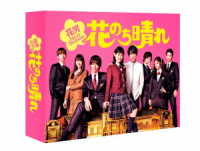Full Description
This book celebrates the centennial of Dewey's visit to China (1919-1921). Reflecting on the history of Dewey's visit is critical to understanding China's modernization and to reevaluating the early efforts of the radical intellectuals in the May Fourth Movement (1919), some of whom were Dewey's students at Columbia University. This study also helps us to critically reflect on the China-US relationship for our contemporary world. The historical, philosophical and comparative perspectives applied in this book may shed light on current conflicts. Dewey's thoughts were well-received by different scholars but also misperceived or misinterpreted in different historical periods. This project tries to understand the challenges of both cultures (Chinese and Western) by using this historical episode as a distant mirror to better perceive and understand the present.
By reviewing this historical event, we also find new space to reinterpret Eastern philosophies such as Confucianism and Buddhism. We find that there's some surprising commonalities shared by Confucianism, Buddhism, and Deweyan pragmatism that provide possibilities for seeking a more inclusive conceptual framework for education in the West as well as the East.
Contents
Acknowledgements
List of Images and Tables
1 The Revival of Confucian Education in Study Halls and Academies
1.1 Confucian Education Emerging from Historical Discontinuities
1.2 Popular Confucian Revival and Agency in the Classics-Reading Movement
1.3 Wang Caigui and the Movement's Underlying Intellectual Construction
1.4 Links to the Confucian Revival on Political and Academic Levels
2 Dynamics of Utopianism: Confucian Visions in Response to Social Problems
2.1 Criticism of Public Education and Its Historical Derivation
2.2 Criticism of Society and the Classics as a Solution
2.3 Personal Experiences and Turning Points to Classics-Reading Education
2.4 Group Solidarity in Classics-Reading Activities
3 Grounding Classics-Reading Education in Ideal Learning Environments
3.1 Nature, Naturality, and the Ideal Physical Environment for Education
3.2 The Family, Parenting, and Ideal Social Environments for Education
4 Self-Cultivation and a Regulated Lifestyle in Study Halls and Academies
4.1 Elements of Classics-Reading Practice
4.2 Shaping the Body and Forming the Self: Rules and Discipline
4.3 The Spiritual Dimension of Life in Study Halls and Academies
5 The Movement's Political Implications and Potential for Social Change
5.1 The Child in Classics-Reading Education: Empowered or Lacking a Future?
5.2 The Adult Activist: Potential and Limits of Social Change
Appendix
References








